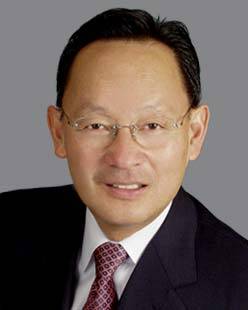Getting to Know Justice Ming Chin – ADR Services, Inc. Mediator

Former ACBA Board President and Retired California Supreme Court Justice Ming Chin graciously spent some time with us back in September of 2021 to answer a few questions to get to know him better. Justice Chin joined ADR Services, Inc. in 2021 after a highly decorated and illustrious career marked by exemplary public service, including 24 years as an Associate Justice of the California Supreme Court. He is deeply respected and admired among his peers, not only for his remarkable intellect and strength of character, but also for his great dedication and contributions to the California judiciary and to the legal community at large. As a mediator, arbitrator, referee, and appellate consultant at ADR Services, Inc., Justice Chin continues to service the business and legal communities by resolving complex and divisive matters through alternative dispute resolution. Read Justice Chin’s full bio here.
When did you know you wanted to be a lawyer?
I was born and raised on a potato farm in Oregon and attended a boarding school in Klamath Falls. By the time I got to Jr. High, the Sisters decided they didn’t want to deal with boarders. The judge in town was a family friend and called my father and asked if I could come live with them. He talked to me about the law, gave me law books, and even let me observe jury trials. He was a wonderful man. He gave me Blackstone’s Commentaries on the Laws of England to read when I was only 12! He died my first year of law school, but when I was appointed to the Supreme Court, his oldest daughter came and gave me her dad’s gavel.
If you hadn’t become a lawyer, what would you be doing instead?
I’d probably still be on the farm. When I graduated from undergrad, my brother and sister wanted me to come back and take over for dad, run the business side.
My second choice might have been architecture – I love design.
What do you know now that you wish you had known when you were first admitted to practice?
It’s been an incredible journey. I didn’t really appreciate the importance of never being afraid to learn something new at the beginning of my career. Horizons open when you learn something new and get really good at it. When I was appointed to Alameda Superior Court, the Presiding Judge asked what area of the law do you know the least about? I had tried all kinds of criminal cases, some business cases, civil cases, the only thing I hadn’t done is family law. Of course they assigned me to family law. Immediately I took the 40 hours advanced family law class, the best one I’ve ever been to. The presenter, Don King, said he’d been teaching family law for so long, and asked if I could take over. I ended up teaching family law at USF for 3 years!
When I was on the Court of Appeal there was a DNA case where I had to learn from ground up. I wrote the first option about admissibility, People v Barney, in 1992. There was virtually nothing at the time. Eventually I taught classes on forensic science locally and abroad!
What’s one thing people might be surprised to learn about you?
For years my son wanted me to play golf, and I said Jason, that’s an old man’s game. I’ll play when I can’t play tennis. I started playing at 65, he was right it’s too late. After 13 days of golf in a row, I had to do something else to entertain me, one of the reasons I became a neutral with ADR Services, Inc.!
You served as President of the Alameda County Bar Association in 1987, what value do you find in bar associations?
The legal profession is improved when you get attorneys together with the common purpose of making the profession better. In court, you’re fighting for clients, relationships can get frayed. Good relationships are a more comfortable way to practice. The ACBA is one of the best places to make these connections. I hope that young layers will participate in bar associations to become better lawyers. It’s important to get to know good lawyers – you will find great mentors through bar associations who are willing to share their experience.
I still think it’s important that lawyers treat each other civilly. Fighting till the last tooth and nail, using scorched earth practices accomplishes nothing. There’s another good reason to treat each other civilly, other than good manners: in order to apply for the bench, you have to list the most important cases of your career and the lawyers and the judges who you worked with on them. I had no idea that the Governor’s office and the JNE Commission talked to those lawyers. The best feedback I got from my application process was they said, “Ming, you know, those to whom you gave money thought you were a terrific lawyer AND those from whom you took money from also thought you were terrific!”
Thank you for your time Justice Ming Chin. Congratulations on your retirement from the Supreme Court, and we’re excited to continue working with you in your new role at ADR Services, Inc. as a mediator.


